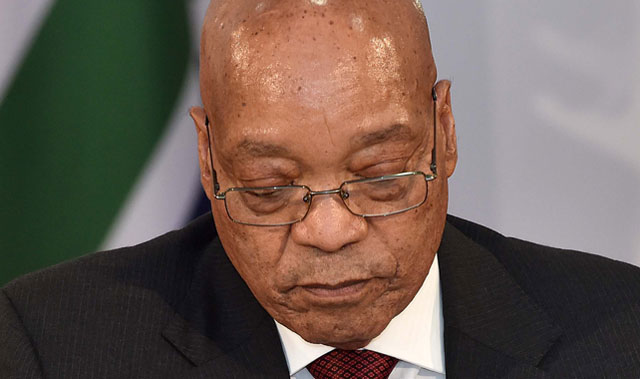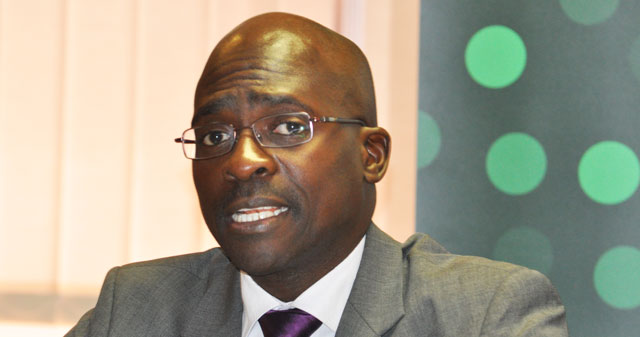
The ANC is adopting a dangerous political approach used in failing states like Algeria, Zimbabwe and Venezuela. Its aim is to deflect attention from its policy failures and from numerous scandals surrounding President Jacob Zuma, his family and the politically connected Gupta network.
The approach was allegedly crafted by Bell Pottinger, a London based PR firm. It focuses on two concepts.
The first is the term “white monopoly capital”. The phrase broadly refers to control of the economy by apartheid beneficiary capitalist oligopolies at the expense of South Africa’s black majority.
Accompanying it is the term “radical economic transformation”. This is defined differently by various senior government officials. But is understood to mean rapidly changing the economy’s ownership, control, and production patterns in favour of the previously disadvantaged.
However, beyond damaging South Africa’s social fabric, framing the country’s current economic impasse in such a dichotomous politically charged way has negative consequences.
Firstly, it distracts attention from the private sector’s real sins. This makes it more difficult to objectively hold business to account for its own nefarious activities. These include tender fraud, collusion, price fixing, fronting, illicit capital flows and tax evasion. Framing the discourse as “white monopoly capital” muddies the waters. It becomes unclear whether exposing private sector crimes is merely a politically motivated assault, or an attempt to uphold the law.
Secondly, the ongoing rhetoric will further damage the chances of economic recovery. This is because it will deter long-term domestic and international investment. It will also encourage companies to move their capital elsewhere and use complex tax avoidance mechanisms.
Thirdly, trumpeting vacuous slogans is also unlikely to raise the prospects of credible policies that will deal with the country’s structural challenges.
In the past two decades, South Africa has failed to modernise its labour and education systems. This has meant limited success in rolling back poverty, inequality and unemployment. As a result, the country has one of the highest unemployment rates and gini coefficients in the world.
The structural problems in the education system have resulted in poorly prepared senior school and university graduates. This is despite the number of children attending school increasing exponentially since compulsory education was introduced in 1994.
Consequently, the country is poorly positioned to take advantage of the “fourth industrial revolution”.
Making things worse is the failure to adopt industrial policies to diversify the country’s export mix away from commodities to more sophisticated beneficiation and manufacturing activities. Commodities such as gold, platinum and coal, thus continue to comprise a significant portion of the country’s export earnings.

Although the services-based sectors have given rise to an emerging middle class, this new wealth is largely debt-fuelled and consumption driven. This limits savings, capital accumulation and class mobility for most of the population.
What’s at stake
In mid-2017, the rating agency Moody’s will review South Africa’s sovereign credit rating. This comes after two recent downgrades by global credit rating agencies S&P and Fitch.
A great deal hangs on Moody’s decision. If it downgrades the government’s rand-based bond credit rating two notches to junk status, the country will be expelled from the World Government Bond Index. This will compromise its credibility as an investment destination. It will stimulate significant capital flight as international bond funds with investment-grade mandates are forced to sell off South African sub-investment grade bonds.
The rand will then depreciate and the trade deficit will widen. The central bank could then be forced to hike interest rates to curb inflationary pressures. Unemployment will rise and the government’s fiscal slack will be further depleted.
A downgrade of the rand denominated bonds would spark economic instability, and potentially significantly weaken the country’s private sector. The country’s politically connected elite could respond to this crisis by seeking to consolidate political power. This could be achieved using “radical economic transformation” to decimate the vestiges of “white monopoly capital”.
In the wake of the recent downgrades, some politicians have been peddling an illusion that the country’s current woes are simply “short-term pain for long-term gain” for the majority of South Africans.
But the experiences of numerous countries have shown that there is no gain from going down the populist economic path — only state failure.
There are tentative signs that this risk is beginning to take hold among some ANC leaders. Even Zuma’s newly appointed finance minister began watering down the term “radical economic transformation” at the recent World Economic Forum Africa gathering. Instead, he opted to use the phrase “inclusive growth”.
What needs to be made clear is that the debate around “white monopoly capital” and “radical economic transformation” is about much more than statistics and definitions. It is about the ownership and control of both public and private capital by a politically connected elite. Thus it comes with the potential risk of turning South Africa’s entire economy into a centrally controlled patronage network.![]()
- Sean Gossel is senior lecturer, UCT Graduate School of Business, and Misheck Mutize is lecturer of finance and PhD candidate specialising in finance, University of Cape Town
- This article was originally published on The Conversation

